The President's Message – 11 August 2025

Kia ora katoa
It has been great to see more of you again and especially colleagues from country Western Australia and Aotearoa New Zealand with whom we caught up to chat all things College over the last two weeks.
I want to let you know about your chance to vote soon on an important change to the way our College is governed. On Friday, 21 November 2025 at an Extraordinary General Meeting, we’ll be asking you to vote `yes’ to separate the roles of President and Chair of the RACP Board.
Having done both those unpaid roles, it’s clear to me the combined workload is too much for one person. Previous Presidents and me have taken significant time away from our clinical positions to keep up.
In addition, the Chair role now requires detailed knowledge of large project oversight, governance, strategy, risk and an increasing array of director duties around psychosocial hazards, in addition to its Board committee duties, where a lot of the Board work is undertaken.
Under this proposal drafted by the Board, the President is still on the RACP Board, Chairs the new Council and is the Fellow voice and face of the College nationally and internationally. The Chair of the Board becomes a separate role and under our proposal is chosen by the Board.
The Board can still appoint an RACP member as Chair if they wish. However, we also want to give the Board the option to go outside the RACP and appoint an external, non-member Chair, if they need to.
Why are we suggesting this? The RACP is now a highly complex, bi-national organisation working on multimillion dollar projects and major changes – to improve our service to you. You’re facing unprecedented workplace pressures, crying out for support and we owe it to you to deliver.
Across Australia and Aotearoa New Zealand there are many external Chair candidates who are experts in guiding Boards through challenging times like this and we have had external experienced Board directors on our board for many years now. The Board would need to be satisfied an external Chair was the right fit for the RACP if it chose this.
As I said earlier, a Fellow can still be chosen as Chair, but that individual needs to be highly experienced in overseeing strategy, governance, risk, legal and large projects. We’ll be holding an Extraordinary General Meeting (EGM) on 21 November at which you can vote on a resolution to separate the President and Chair roles. The Board recommends you vote `yes’.
Seventy-five percent of votes cast need to be in favour of the change for it to take effect. Between now and the 21 November EGM we’ll be holding information sessions to explain splitting the President and Chair roles in more detail – and to answer your questions.
You’ll get the voting papers and detailed information emailed or posted to you soon. We had intended to suggest a second change. We were going to ask you to vote on establishing a Nominations Committee for the Board director positions.
A Nominations Committee would interview RACP members and vet directors' credentials and experience for those who want to stand for Board election. It ensures there’s a pool of the highest calibre candidates, from whom you then choose who gets your vote.
Nominations committees have long been used by universities, not-for-profits, membership associations and many other types of organisations to screen governance candidates.
Our College is unusual in only requiring members to self-declare they have the right skills and experience before they stand for election to the Board – there’s no prior interview or credential/skill checking.
That’s out of step with current governance best practice. And it has not served the RACP membership well. Nominations Committees are strongly recommended by regulators and governance experts. However, in consultation and one-on-one discussions, you’ve told us you want more detail.
You want to understand who would be on an RACP Nominations Committee, how they would be chosen, how it would function, and the checks and balances. We hear you – and we have delayed a Nominations Committee vote.
We’re holding additional consultation sessions on the Nominations Committee proposal until 31 October. More information sessions will be held after that, and there’ll be further details on our website.
Once we’ve got your feedback, we’ll draft a Nominations Committee resolution to be put to the next Annual General Meeting on 29 May 2026. That gives you plenty of time to understand exactly what you’d be voting for regarding the nominations committee next year.
These are important changes, and this video is just a summary – look out for invitations to detailed information sessions. Please remember that the Board recommends you vote `yes’ on 21 November, to separate the President and Chair roles.
The RACP will always be our own member-led organisation but we think it can be governed much more effectively in future. Not just to promise results, but to deliver them – for you.
Kind regards
Professor Jennifer Martin
RACP President
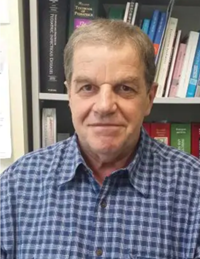 Professor David Isaacs FRACP died on 2 August 2025 after a long illness. Known to many of you for his extensive work as a consultant paediatrician at the Children's Hospital at Westmead, Sydney, and Clinical Professor in Paediatric Infectious Diseases at the University of Sydney, David was a champion for children’s health. He was a vocal opponent of the refugee detention centres on Nauru and Manus Island, and gave a voice to the refugee children who were unable to speak up for themselves. He established the HARK (Health Assessment for Refugee Kids) Clinic at Westmead, providing comprehensive health assessments and ongoing health care to refugee children and their families.
Professor David Isaacs FRACP died on 2 August 2025 after a long illness. Known to many of you for his extensive work as a consultant paediatrician at the Children's Hospital at Westmead, Sydney, and Clinical Professor in Paediatric Infectious Diseases at the University of Sydney, David was a champion for children’s health. He was a vocal opponent of the refugee detention centres on Nauru and Manus Island, and gave a voice to the refugee children who were unable to speak up for themselves. He established the HARK (Health Assessment for Refugee Kids) Clinic at Westmead, providing comprehensive health assessments and ongoing health care to refugee children and their families.
David was a tireless contributor to our College. Since being admitted to Fellowship in 1984 he sat on numerous committees including Writing Panels for both paediatrics and child health, and adult medicine. He was a member of the Paediatrics and Child Health Division (PCHD) Education Committee and sat on the PCHD Council for four years. His College service also included stints on the Internal Medicine Journal Working Group, the Ethics Expert Advisory Group and the Overseas Trained Physicians Assessment Subcommittee for Paediatrics and Faculties.
More recently David was the Editor-in-Chief of the Journal of Paediatrics and Child Health. This important role ensured that our paediatricians research was peer-reviewed and published, providing a pathway for many to continue their work.
In recognition of his outstanding contribution to improving the health of children and young people in Australia David was awarded the RACP Howard Williams Medal in 2023.
He was passionate about bioethics and was published and taught extensively on ethical aspects of immunisation, including his book Defeating the Ministers of Death - The compelling story of vaccination.
In 2015 David was awarded the prestigious RACP John Sands Medal for his significant, substantial and influential contribution to the welfare of the College.
Remembered for his kindness and warmth, and his career in the service of others he will be missed. Our thoughts are with his family, friends and colleagues.
David’s family has shared the funeral details below for anyone who wishes to attend.
Thursday, 14 August 2025 at 10.30am
Camelia Chapel, Macquarie Park Crematorium
Cnr Delhi and Plassey Roads
North Ryde, Sydney
For the live-stream link to the funeral and password please contact Allan Drew Funerals.
Please no flowers. If you would like to commemorate Dave, please donate to the HARK refugee clinic at the Children's Hospital Westmead, an institution he established which was close to his heart.
Donations can be made through NSW Health payment platform:
To direct your donation to the HARK program, please ensure the following fields are completed as below:
- Visit this NSW Health webpage
- Health Organisation: select ‘Sydney Children’s Hospitals Network’
- Hospital/facility: select ‘Childrens Westmead & Randwick’
- Area: select ‘Area of greatest need’
- Your full name: type (HARK) after your name
Image credit: Leading Steps Paediatric Clinic
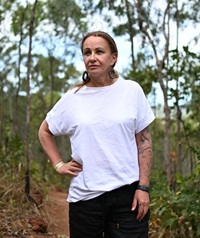 We warmly congratulate Adjunct Professor Sue-Anne Hunter on her appointment as Australia’s first National Commissioner for Aboriginal and Torres Strait Islander Children and Young People.
We warmly congratulate Adjunct Professor Sue-Anne Hunter on her appointment as Australia’s first National Commissioner for Aboriginal and Torres Strait Islander Children and Young People.
This landmark appointment marks a pivotal step forward in protecting the rights, health, and wellbeing of First Nations children. Professor Hunter’s leadership will be instrumental in advancing cultural safety, strengthening advocacy, and driving systemic reform for young people and their families.
We have long championed the creation of this role through our Healthcare of Children in Care and Protection Services position statement, which calls for culturally informed leadership and equitable access to health and wellbeing services for First Nations children, young people, and their carers.
We celebrate this historic milestone and reaffirm our commitment to working alongside First Nations communities to improve health outcomes and build a more equitable future for all children. Image credit: National Indigenous Times.
Find out more
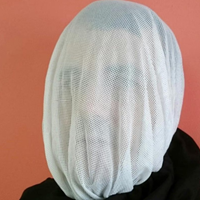 We are urging the Northern Territory Government to reconsider its recently passed youth justice reforms.
We are urging the Northern Territory Government to reconsider its recently passed youth justice reforms.
The reintroduction of spit hoods is dangerous and dehumanising – and these reforms go well beyond that. We’re calling for a health-first approach to youth justice and for direct engagement with government to ensure laws reflect the wellbeing of young people.
Our experts in child health and wellbeing are ready to help shape a safer, fairer, and more humane system. Image credit: ABC News
Read news article l Position statement
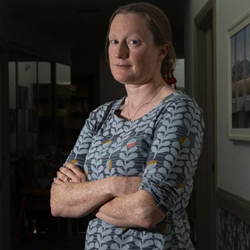
A new paper by Dr Catherine D’Souza FRACP published in the New Zealand Medical Journal paints a grim picture: demand for end-of-life care is rising sharply, yet our services are fragmented, underfunded and understaffed.
While 90 per cent of people who die in Aotearoa New Zealand each year need palliative care, hospices can currently serve only 30 per cent. The situation is expected to worsen as our population ages.
Dr D’Souza calls for urgent, coordinated investment to ensure every New Zealander can access quality care at the end of life – a human right already guaranteed in many countries. Photo credit: The Post Te Upoko O Te Ika
Journal article l Media article
Speak up to protect patient safety, clinical standards, and ethical use of AI

AI is already changing healthcare, now’s your chance to shape how it's used in clinical practice. Please
share your expertise on our draft Position Statement on Using AI in Clinical Practice. Your insights will help ensure AI tools are used safely, ethically and effectively in clinical practice. Closes Friday, 22 August 2025
Read the draft and have your say on this important consultation. You can also explore the Member Consultation webpage for more opportunities to share your opinion and expertise.
Share your feedback
In June, the Australian Technical Advisory Group in Immunisation (ATAGI) announced a significant update to the Australian Immunisation Handbook, advising that COVID-19 vaccinations are no longer recommended for healthy children and adolescents under 18 years of age.
This decision reflects ATAGI’s updated assessment that COVID-19 poses a low risk to healthy infants, children, and adolescents without underlying medical conditions. The revised guidance aligns with global shifts toward reevaluating vaccination strategies for younger populations.
ATAGI’s revised guidance continues to recommend COVID-19 vaccination solely for children aged five to 17 years who are severely immunocompromised or have significant medical complexities that increase susceptibility of severe outcomes.
The College Education Committee has approved the implementation of new curricula for a further 22 Advanced Training programs.
These will take effect from 2026 and will apply to all first-year trainees commencing in the following programs:
Find out more
The above specialties join our two Basic Training and six Advanced Training programs already using our new curricula:
- Basic Training Adult Medicine
- Basic Training Paediatrics & Child Health
- Advanced Training in Cardiology (Adult)
- Advanced Training in Paediatric Cardiology
- Advanced Training in Gastroenterology
- Advanced Training in Nephrology
- Advanced Training in Geriatric Medicine
- Advanced Training in Rehabilitation Medicine (Adult)
Have you been working on implementing our new curricula? If so, please provide formal feedback to our evaluation team. This is a long-term evaluation, and we are looking at everything – from early rollout to graduate outcomes. There’s still time to share your views as interviews are continuing throughout August.
Please visit the feedback and evaluation page of the New Curricula Support Hub on the RACP website for participant information sheets and ways to book your interview. Please allow between 30-45 minutes for your interview.
We appreciate the trainees and educators who have generously taken the time to share their views already – your insights will help us improve training journeys by:
- identifying areas for improvement
- strengthening support for trainees and educators
- highlighting what’s working well.
Did you know that your participation in new curricula online training sessions and self-guided eLearning, including providing feedback, can be logged as a Continuing Professional Development (CPD) activity.
Discover what resources and opportunities may help you understand your role in our new curricula – whether you are a trainee, an educator, a supervisor, a mentor or are just keen to know more as an active College member.
As well as the self-guided and Zoom based options, you can request assistance from a dedicated Member Support Centre team member.
Click on the links below to discover resources and opportunities that best suit your needs:
New Curricula Support Hub
Information and links provided by role. Category 1 and Category 2 CPD activities available. Updated series of drop-in training sessions lead by our Curriculum team via Zoom. Open to all trainees and educators across Australia and Aotearoa New Zealand – no registration needed.
RACP online learning
Dedicated training and support tools: Category 1 and Category 2 CPD activities available.
New tools: specialty specific resources for selected programs
New Curricula feedback and evaluation
Help us improve training journeys. Interviews are open throughout August for members to provide formal feedback about the new curricula programs implemented in 2024 and 2025. Each interview will take between 30-45 minutes and is eligible as a Category 1 CPD activity. Book your interview
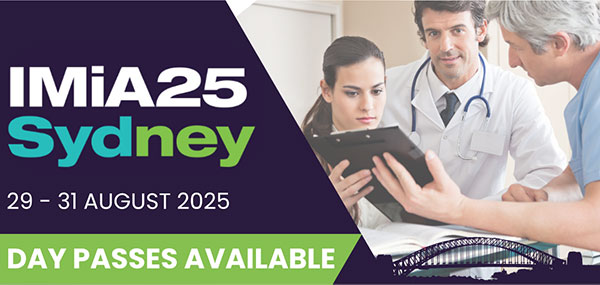
Less than three weeks to go, don't miss out
Too busy to commit to the full three days at IMiA25 but still want access to the learning, networking, and expert insights? You don't have to miss out. With less than three weeks to go, our day pass* offers you the flexibility to select a day that works for you.
Featuring keynote speakers presenting on innovative approaches to treatment, research symposiums and interactive workshops, each day is packed with engaging presentations you don't want to miss.
Whether you're a seasoned practitioner or new to the field, the program is sure to provide you with valuable insights to broaden your expertise across addiction medicine.
*Day passes include full access to all sessions, exhibitions, and catering on your selected day.
View program l Register now

Looking to contribute to the work of the College and help shape the future of your profession? A range of College committees, working groups and other roles are now open for expressions of interest.
Getting involved is not only a great way to give back – it’s also a chance to expand your knowledge, stay connected to developments in your specialty, and enjoy the personal and professional rewards of meaningful contribution.
Some current opportunities you may be interested in:
More opportunities
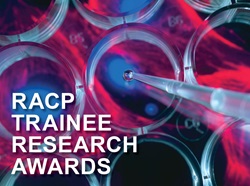
All RACP trainees are encouraged to apply to be part of the RACP Trainee Research Awards. Applications for 2026 are open until 31 August 2025. Please see the website for further details and eligibility criteria.
The RACP Trainee Research Awards provide a valuable opportunity for trainees to present their research at an Australian or Aotearoa New Zealand event. The best presenters from each local event are invited to present their work alongside recognised researchers at an RACP event the following year.
Listen now
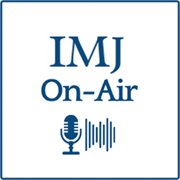 Cerebral microbleeds are a finding on MRI that are usually asymptomatic. There are two main aetiological pathways, one occurring as a result of uncontrolled hypertension and the other from the accumulation of amyloid-beta peptide. The link between cerebral amyloid angiopathy and Alzheimer’s Disease is not understood and even the impact that cerebral microbleeds more generally have on cognition.
Cerebral microbleeds are a finding on MRI that are usually asymptomatic. There are two main aetiological pathways, one occurring as a result of uncontrolled hypertension and the other from the accumulation of amyloid-beta peptide. The link between cerebral amyloid angiopathy and Alzheimer’s Disease is not understood and even the impact that cerebral microbleeds more generally have on cognition.
For the study discussed today, clients of an Australian memory clinic were retrospectively assessed for prevalence of cerebral microbleeds and how this correlates to performance on cognitive tests and formal diagnosis categories. Prevalence of multiple cerebral microbleeds was associated with poorer cognitive performance and more severe diagnoses. And there are suggestions of a shared instigator between Alzheimer’s Disease cerebral amyloid angiopathy. But novel anti-amyloid therapies can also cause increased bleeding risk, meaning that multiple microbleeds are a contraindication for these drugs. We hear how clinicians in the memory clinic balance therapeutic outcomes and potential risks.
Credits
- Guest: Associate Professor Paul Yates FRACP PhD (Austin Health; University of Melbourne)
- Guest Host: Dr Duncan Austin FRACP PhD (Alfred Health; Cabrini Health)
Please visit the Pomegranate Health webpage for a transcript and supporting references. Log in to MyCPD to record listening and reading as a prefilled learning activity. Subscribe to new episode email alerts or search for ‘Pomegranate Health’ in Apple Podcasts, Spotify, Castbox or any podcasting app.
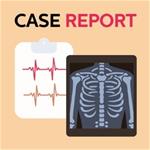 A 46-year-old man is admitted to hospital following a first-time presentation of psychosis that involved barricading himself inside a neighbour’s home. At admission he appears disorganised with slow movements and speech. His rambling reveals bizarre delusional beliefs of a paranoid and persecutory nature. At moments he shows aggression towards staff but when examined reports occasional dizziness and an intolerance of cold. Physical examination reveals cool peripheries, sparse axillary and pubic hair, and soft adult-sized testicles. The investigating team suspect hypothyroidism and a complex series of investigations and therapies follows.
A 46-year-old man is admitted to hospital following a first-time presentation of psychosis that involved barricading himself inside a neighbour’s home. At admission he appears disorganised with slow movements and speech. His rambling reveals bizarre delusional beliefs of a paranoid and persecutory nature. At moments he shows aggression towards staff but when examined reports occasional dizziness and an intolerance of cold. Physical examination reveals cool peripheries, sparse axillary and pubic hair, and soft adult-sized testicles. The investigating team suspect hypothyroidism and a complex series of investigations and therapies follows.
Guests
- Dr Peak Man Mah FRACP (Lyell McEwin Hospital, University of Adelaide)
- Dr Malcolm Borg (Royal Adelaide Hospital)
Host
- Associate Professor Stephen Bacchi FRACP (Lyell McEwin Hospital; University of Adelaide)
Subscribe, claim CPD and get the transcript
To be among the first to find out about the latest Pomegranate Health podcasts, subscribe to new episode email alerts. You can also search for ‘Pomegranate Health’ in Apple Podcasts, Spotify, Castbox, or any podcasting app. Did you know you can record listening and reading as a prefilled learning activity by logging on to MyCPD? For a transcript and supporting references of our podcast, please visit the Pomegranate Health webpage.
The Australian Digital Health Agency (ADHA) is inviting Expressions of Interest for membership to the National Clinical Governance Council (NCGC), a newly established governance committee to support ADHA through the next phase of Better and Faster Access reforms and other national clinical governance in digital health initiatives.
The National Clinical Governance Council (NCGC) follows on from the Clinical Reference Group (CRG), established in 2023 by the ADHA and the Department of Health, Disability and Ageing to provide strategic advice and clinical oversight to the ‘Faster access to diagnostic imaging and pathology reports in My Health Record’ project and broader ‘Improved Sharing of Information to My Health Record’ program.
The final meeting of the CRG was held in May 2025, and the ADHA is now transitioning toward an enduring clinical governance stewardship model. The NCGC will provide clinical governance, system safety and quality, lived experience and expert clinical advice on the implementation and ongoing evaluation of the Better and Faster Access program, along with supporting other clinical governance priorities.
The RACP is seeking members on behalf of the ADHA with a diverse range of skills and experience, particularly in the areas of clinical expertise, digital health, consumer advocacy, patient safety and clinical governance to join the NCGC.
The NCGC will commence its operations with an inaugural meeting in mid-September 2025.
If you are interested, please submit an Expression of Interest statement outlining your suitability, relevant experience and interest in the role for the role (250 words maximum) by midday Friday, 15 August 2025 to dean.racp@racp.edu.au with a short CV (four pages maximum).
New additions to the webpages include:
- downloadable Power Outage Planning Checklist [PDF] for easy offline use
- water information, developed with support from Kidney Health Australia for Life Support Customers and Water Services Association of Australia, highlighting how outages can affect tap water supply
- variety of tagged PDFs now available across the site (essential for people who are blind or have low vision).
These updates build on the platform’s existing accessibility and inclusion resources, including:
Did you know you can now report a potential breach of an Accredited Training Setting quickly and safely online?
You can now access our improved and streamlined existing reporting process by making it completely online. You no longer need to download a word document to complete and submit.
This could include:
- excessive workload
- unsafe working conditions or rosters
- not enough supervision
- bullying, harassment, discrimination or racism
- media coverage or survey results showing serious problems or risks
- serious concerns about the health and wellbeing of trainees or supervisors
- serious concerns about patient safety.
Anyone can submit a report at any time – including trainees, supervisors, groups, or organisations. Reporting a potential breach can be done anonymously should you wish, and without fear of repercussion or personal consequence. All cases will be treated with discretion, careful consideration and due respect. You can access and complete this form through the RACP website.
The Department of Health, Disability and Ageing has provided information about RSV vaccination, who it is recommended for, and how and where to get vaccinated. If you are eligible, you can get the maternal RSV vaccine for free under the National Immunisation Program.
Please read the following updated resources to support the correct administration of RSV vaccines and monoclonal antibodies:
Key points:
- A single dose of the RSV vaccine, Abrysvo®, is recommended for women at 28 to 36 weeks of pregnancy and is available for free through the National Immunisation Program (NIP).
- Arexvy® must not be administered to pregnant women.
- States and territories are offering the RSV monoclonal antibody, Beyfortus™ (Nirsevimab) for free to eligible infants and children.
- Abrysvo® and Arexvy® must not be administered to infants or children.
- The department has produced a poster outlining the correct administration of RSV vaccines and monoclonal antibodies by cohort
You may wish to subscribe to the Department's email list to receive the latest National Immunisation Program updates. If you have questions or require further information, please contact immunisation.enquiries@health.gov.au.
Find out more
Your voice. Your training. Our future.
If you’re a current RACP trainee in Australia or Aotearoa New Zealand, now is your chance to have a real impact on the future of physician training. Two important surveys - the Medical Training Survey (MTS) (Australia) and Torohia: Medical Training Survey (Aotearoa New Zealand) - are launching in August. These surveys give you the platform to speak up about your training experiences and help us understand what needs to change.
Why should you take part?
- Your feedback will drive real improvement. Results from these surveys are used to shape how training is delivered – from the quality of supervision to workplace culture.
- It’s your chance to have your say. This is your unique opportunity to highlight issues, acknowledge excellence, and ensure that your training experiences guide change.
- It’s quick, confidential, and powerful. Your individual responses will remain anonymous, but collectively, they will tell a powerful story about the realities of physician training.
The Medical Training Survey: Australia
The Medical Training Survey (MTS) is for Australian trainees and Overseas Trained Physicians (OTPs) currently undertaking supervised practice in Australia. It is:
- open from Monday, 4 August - Wednesday, 8 October 2025
- accessible through a survey link, which will be provided to trainees once they renew their registration with Ahpra
Visit the Medical Training Survey website for more details. If you have questions, please email MTS@ahpra.gov.au
Torohia: Aotearoa New Zealand
Torohia is the Medical Training Survey for Aotearoa New Zealand trainees. It is:
- open from Monday, 18 August - Monday, 8 September 2025
- a unique survey link emailed to trainees by the Medical Council of New Zealand on Monday, 18 August 2025
For more information, visit www.torohia.org.nz. If you have questions, need support or would like to submit your feedback, please get in touch with the Torohia team by email contact@torohia.org.nz
The Council of Australian Therapeutic Advisory Groups has released two important national resource suites now available on its website.
Medicines Advice Initiative Australia
Developed as part of the Medicines Advice Initiative Australia consortium, these six evidence-based toolkits support health professionals, Medicines and Therapeutics Committees, and health service leaders to improve transitions of care.
To support implementation, two accompanying tools highlight how these resources can be used at a system level by clinical governance committees, Medicines and Therapeutics Committees (MTCs), medicines safety committees, department heads and in health professional development:
Collaborating with consumers
This suite of plain-English consumer counselling tools helps health professionals engage consumers in shared decision-making on complex medicine governance topics.
We’ll be using our One O’Connell Street, Sydney office for several upcoming important College exams. To ensure a quiet and focused environment for candidates, the space will be closed to members and RACP team members who are not involved in the exams on the following dates:
- Tuesday, 14 October 2025 – Australasian Faculty of Public Health Medicine Oral Examination
- Wednesday, 15 October 2025 – Australasian Faculty of Public Health Medicine Oral Examination
- Thursday, 16 October 2025 – Australasian Faculty of Public Health Medicine Oral Examination.
The 145 Macquarie Street, Sydney Office will be open as usual.
As healthcare workers who dedicate our lives to helping others, it’s important to take the time to care for ourselves. We would like to remind everyone that it's okay to not be okay. If you need someone to talk to, you can reach out to the RACP Support Program. It's a free, 24/7 and completely confidential support service that is delivered externally through Converge International.
Whether you have something worrying on your mind, are finding getting out of bed to be a struggle, or just feel like talking to someone for helpful, judgement-free advice, this free support service may be just what you need.
Find out more

Did you know that RACP Benefits gives you exclusive access to a range of discounts and offers from leading brands and retailers in Australia and Aotearoa New Zealand? Simply log in to the portal to start shopping and saving today. These special deals are exclusive to the College and made possible by our benefits partner, Member Benefits Australia.